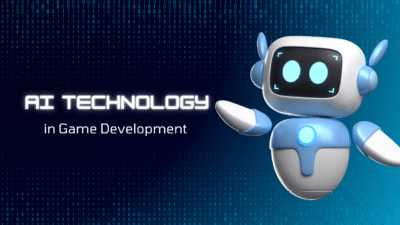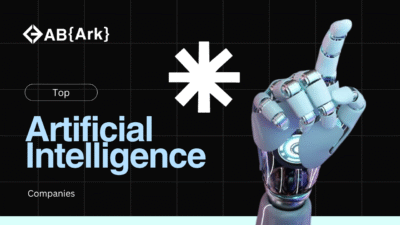This blog will guide you through the nuances of Custom AI vs SaaS AI, unpacking the pros and cons of each approach, exploring use cases, and helping you determine which fits best with your business strategy in 2025 and beyond.
Understanding the Basics of AI in Business
What Is SaaS AI?
SaaS AI, or Software as a Service powered by artificial intelligence, is a subscription-based model where businesses access AI tools via cloud platforms. These services—ranging from chatbots to predictive analytics—are maintained by third-party vendors and require little to no setup.
Popular examples include:
- ChatGPT for customer service
- Salesforce Einstein for CRM automation
- Jasper AI for content generation
SaaS AI platforms offer scalability, regular updates, and lower upfront costs—making them ideal for startups and small businesses looking to integrate AI quickly.
What Is Custom AI?
Custom AI refers to solutions developed from scratch—or heavily modified—specifically for a company’s unique needs. These are tailored models trained on proprietary data and integrated deeply into existing infrastructure.
Examples include:
- AI-based fraud detection tools tailored for a specific bank.
- A custom computer vision system for quality inspection in a manufacturing unit.
Though custom AI solutions provide higher accuracy and relevance, they demand a significant investment in time, talent, and budget.
Key Comparisons – Custom AI vs SaaS AI
1. Cost and Time to Deploy
- SaaS AI is more budget-friendly, often costing as little as $30–$500/month depending on usage. It’s ready to use within minutes or hours.
- Custom AI, on the other hand, may cost $50,000–$500,000+ and take 3–12 months to build and deploy.
For companies on a tight budget or needing immediate results, SaaS AI is the obvious choice. However, businesses with unique workflows may see better ROI with a custom-built solution in the long run.
2. Scalability and Flexibility
SaaS AI platforms are designed to scale rapidly across users and teams but offer limited customization. If your business processes evolve or require specific features, you’re at the mercy of the vendor’s roadmap.
Custom AI solutions shine in flexibility. You control the algorithm, the data pipeline, and the output. For businesses in industries like healthcare, fintech, or logistics, this level of control is invaluable.
3. Data Security and Compliance
Using SaaS AI means trusting third parties with your data. While top providers follow strict security standards, compliance with specific regulations (like HIPAA or GDPR) can be tricky.
Custom AI offers more control over data storage, encryption, and compliance, making it a better fit for highly regulated sectors. You can host the solution on-premises or in a private cloud, safeguarding sensitive data.
Industry Use Cases – Who’s Using What?
SaaS AI Use Cases
- Retail: Personalized recommendations (e.g., Amazon Personalize)
- Marketing: Automated ad targeting (e.g., Adzooma)
- Customer Support: Chatbots and virtual assistants (e.g., Intercom, Drift)
- Content Creation: AI copywriting tools (e.g., Jasper AI)
These plug-and-play tools are ideal for non-technical teams and fast-growing companies needing quick results.
Custom AI Use Cases
- Healthcare: AI models trained on proprietary patient data for diagnosis and treatment.
- Manufacturing: Predictive maintenance based on unique machine behavior.
- Finance: Customized fraud detection trained on internal transaction data.
These examples show how custom AI creates competitive advantages in domains where standard SaaS solutions fall short.
Future Outlook – Where Is AI Headed?
According to Gartner, by 2026, over 75% of enterprises will shift from piloting to operationalizing AI—up from 30% in 2023. The demand for custom AI solutions will grow among enterprises looking to differentiate, while SaaS AI will remain the go-to choice for rapid innovation among SMBs.
Hybrid models are also emerging—custom AI built on SaaS frameworks—combining speed with customization. This trend blurs the lines and offers new strategic options.
FAQs About SaaS AI and Custom AI
- Can SaaS AI be customized?
To a limited extent—via APIs and settings. Full customization usually requires custom development. - Which is better for startups—SaaS AI or Custom AI?
SaaS AI is generally better due to cost-effectiveness and fast deployment. - Is custom AI only for large enterprises?
Mostly, but mid-sized businesses with niche needs can benefit too. - What are examples of SaaS AI tools?
ChatGPT, Salesforce Einstein, Grammarly, Jasper, and Zoho Zia.
Conclusion: Which Should You Choose?
Choosing between Custom AI and SaaS AI comes down to your business goals, resources, and timeline.
- Need speed, low cost, and minimal technical effort? Go with SaaS AI.
- Need full control, proprietary data integration, and long-term ROI? Invest in Custom AI.
In many cases, the smartest move might be a hybrid strategy—start with SaaS AI to test the waters, then evolve into a custom solution as your business matures. Either way, integrating AI is no longer optional—it’s a competitive necessity in 2025 and beyond.




